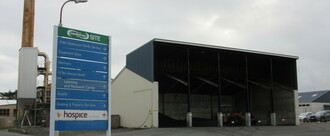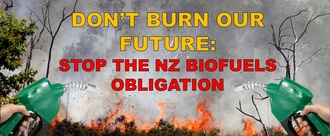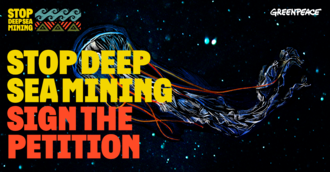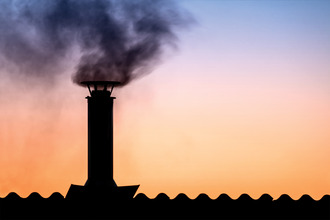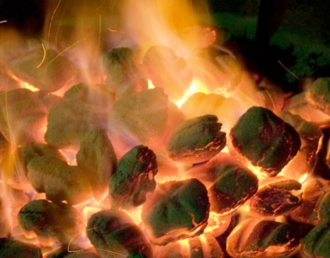-
Help small businesses on the way to a sustainable energy future!Auckland Council can reduce the use of fossil fuels for energy. They can not only take action to make hospitals, schools, and buildings more sustainable but also support small businesses to make a transition to sustainable energy and provide assistance in the process. The Earth is reaching closer and closer to the tipping point. A lot of that is due to climate change; which is caused by greenhouse gas emissions. The main cause of greenhouse gas emissions is from energy. Energy emissions happen from the farm where they are collected, to the way they are used in homes. Promoting sustainable, emission-free energy would have a positive effect on the Earth. The small businesses would also benefit from cheaper power, and having the cost covered to persuade more people to switch. Auckland Council should fund the small businesses $400 for the first month of switching to sustainable energy. Auckland Council would run this program, under which a business owner could call their office and request funding to switch to sustainable energy. The $400 would cover most of the first month of sustainable electricity. Our goal is that with this new incentive, small business owners would be inclined to support sustainable energy because of the benefit to their business. 1. The small businesses would benefit from transitioning to sustainable energy. Sustainable energy is more inexpensive than fossil-fueled energy, which would benefit small businesses that need to use a lot of power (eg. heating and chilling food). 2. Having more businesses switch to sustainable energy would also reduce emissions in New Zealand. Currently, over 40% of New Zealand's greenhouse gas emissions come from activities such as driving, generating electricity, and manufacturing. Encouraging businesses to use sustainable energy could reduce that number, reducing New Zealand's overall emissions. The effects that could have on our environment are really important. Reduced emissions could slow global warming, reduce air pollution, and keep New Zealand on track in our Sustainable Development Goals. Global warming is an urgent issue, we need to take action to stop it. It's caused by greenhouse gases in the atmosphere trapping heat from the sun. Even though it may seem small, every second more glaciers begin melting, and sea levels rise which causes coastal cities; like Auckland to flood. Slowing global warming is a large thing that could be affected by more businesses transitioning to sustainable energy. Air pollution is caused by emissions of pollutants into the air. These pollutants are fine particles like smoke that can travel into the body and affect our health. Air pollution causes health problems such as asthma, heart disease, and stroke. Air pollution causes around 6.7 million premature deaths each year. That's 6.7 million lives gone and millions more devastated by the loss. Preventing emissions from businesses is a step in stopping this issue, which is an action we should all take. So, take action for small businesses using sustainable energy. It helps not only the environment and businesses but also you. Who knows who could be affected by the effects of our emissions next?183 of 200 SignaturesCreated by Amy Gao
-
Support community energy for a just transitionWe can’t keep powering our lives with polluting fuels from last century that keep damaging our climate, our neighbourhoods, and our health. The fossil fuel industry is greedily lining its pockets and five major power companies in New Zealand profit from burning coal. Meanwhile, our communities suffer from stronger floods, droughts, polluted air, blackouts and soaring energy bills (in the last 30 years households power prices rose by 79%). Vulnerable communities are at the forefront of these devastating impacts. Community energy is critical for a just and equitable transition to renewable electricity and tackling energy hardship. This is why we are asking our Government to make a commitment and release a strategy that will help Aotearoa achieve 750MW community energy generation and 400MW community storage by 2035. We need to draw a line in the sand and speak up against our broken energy system and put an end to energy injustice. We can push our politicians to invest in affordable clean energy and introduce policies that will strengthen energy sovereignty. Will you join our fight for climate justice and start advocating for solutions? We have the technology available to power our lives without killing our planet and harming our communities. Getting to 100% renewable energy electricity is 100% doable. We can have homegrown and locally-produced energy and stop being reliant on the fossil fuel industry. Renewable energy projects create more investment across the economy. More community-controlled renewable energy will give people greater access to and ownership over their local energy systems and strengthen community ties. https://www.youtube.com/watch?v=qZ_eT9LY4VM428 of 500 SignaturesCreated by adam currie
-
A bid for the future - no more oil and gas drilling in TaranakiWe are deeply disappointed that the government has once again opened over 20% of the Taranaki region for future oil and gas drilling through a Petroleum Block Offer process. The ‘Block Offer 2020’ is a tender for permission to explore for petroleum - this means the government is offering blocks of land in Taranaki to oil companies looking to drill for oil and gas. Block Offer 2020 is open now and closes at 5pm on 26 July 2023. We’re saying: NO WAY! We all know we need urgent radical change now to prevent climate chaos. It’s a practical and moral imperative to do all we can to defend our planet and our future. The climate emergency demands we transition away from fossil fuels towards clean sustainable energy sources. Yet greedy fossil fuel companies are taking the opportunity to look for more oil and gas in Taranaki. The Government must stop handing out oil and gas permits. Handing out permits for more fossil fuel exploration while the planet is heating at unprecedented rates can only be described as ecocide. Handing out permits to oil companies now is like handing out death certificates to our children. Fossil fuel companies have known of their impacts on climate and ocean chemistry for decades, and have acted to increase their biosphere-destroying activities, instead of transitioning to a degrowth economy. We are seeing and feeling the impacts of climate change with our very own eyes. The storms this summer that have brought so much devastation to Aotearoa need to be our wake-up call. Carbon dioxide levels in the atmosphere keep rising due to increasing emissions from human activity - the use of fossil fuel being one of the main causes. Despite politicians saying that climate change is a priority successive governments have failed. It’s now up to us to rise up together for climate justice. Join our bid to take climate change seriously – for our tamariki and Papatūānuku. Join our bid to stop drilling for more oil and gas in Taranaki now! Find out more Climate Justice Taranaki: http://climatejusticetaranaki.info/ Block Offer 2020, New Zealand Petroleum and Minerals (NZPAM) https://www.nzpam.govt.nz/permits/petroleum/block-offer/block-offer-2020/3,156 of 4,000 SignaturesCreated by Climate Justice Taranaki
-
Phase out the import and sale of cars that run on petrol and diesel.Urgent action is needed as we face a climate emergency that threatens all life on Earth. Globally, the continued global rise in sales of SUVs pushed their climate-heating emissions to almost 1bn tonnes of carbon dioxide in 2022, according to the International Energy Agency. Here in Aotearoa, transport is responsible for 37 per cent of greenhouse gas emissions and is the second biggest climate polluter after agriculture. In 2023 the gas-guzzling Ford Ranger and Toyota Hilux were the top-selling vehicles. Big SUVs are dangerous for other people on the road, particularly children, people on bikes and pedestrians, they impact people's health with more harmful pollution and they drive the climate crisis. Transport emissions have to come down, but instead of relying on fuel price increases which are unworkable and unfair for lower-income families already suffering the cost of living crisis, the Government should take action to remove the worst vehicles from our roads.280 of 300 SignaturesCreated by Nick Young
-
Use wood chip not lignite coal to heat Te Whatu Ora Southern hospital!Health is the largest carbon emitter in public sector- with pollution affecting people’s health. Greenhouse gas emissions in Te Whatu Ora Southern are high compared with other major Te Whatu Ora regions. Actually Nitrogen dioxide emissions were three times that of other Te Whatu Ora regions. Wood chips would reduce current health impacts of burning lignite ( coal), particularly in South Invercargill. Trials with wood chips at Te Whatu Ora Southern 2 years ago show these are able to be burned in the present boiler. There are plentiful local sources of woodchip to fuel the hospital burners. A lot of this is currently burnt inefficiently in farm windrows, causing further air pollution. This could be repurposed for the hospital. People in South Invercargill took up the Environment Southland free loan scheme to change from coal fires to clean energy options that have improved air quality. We are calling on Te Whatu Ora Southern to do the same and change to wood chips with urgency! Petition organised by Jenny Campbell & Coal Action Murihiku - please contact Jenny by clicking her name at the top of the petition to discuss. For more info on the issue: https://www.newsroom.co.nz/coal-switch-a-slow-burner-for-hospitals200 of 300 SignaturesCreated by Jenny Campbell
-
Don’t burn our future: Stop the NZ biofuels obligationBecause growing extra food crops to use for fuel, which is what this policy would cause, drives the destruction of the natural world, will worsen the impacts of climate change and increase the costs of both food and fuel. We are calling on the Government to drop plans for the proposed biofuels obligation because of the overwhelming evidence that: 🌏 Similar biofuel directives around the world have caused massive net increases in greenhouse gas emissions compared to using regular fuel. EU Biofuels policy has acknowledged this, but so far the EU policy response of Sustainable Source Certification has not been successful. 🌏 Growing the feedstocks for biofuel drives tropical deforestation, destroys biodiversity, increases emissions and deprives indigenous people of their land and livelihoods. 🌏 Biofuel obligations drive up food prices, as the majority of biofuels are made from food and feed crops. Food price increases worsen living conditions for the most vulnerable people around the world. 🌏 Non-food ‘second generation’ biofuels, or those derived from food waste are not available in the necessary volumes, or at all. Introducing a biofuels obligation will not change this, as fuel suppliers will naturally try to meet the obligation at the lowest possible cost.* As well as all this, introducing an unsustainable biofuel directive will waste time and resources that could be directed to meaningful climate action. Join our call on the government to drop its plans for the biofuels obligation. We also call on the government to focus on addressing transport and energy emissions using methods that are proven to work, such as renewable energy, electrification, increased public and active transport, rail freight, coastal shipping and demand reduction policies. We also support policies that are likely to be effective in developing a sustainable wood waste-to-liquid fuel industry in New Zealand, as part of a comprehensive and co-ordinated national energy strategy. Low Carbon Kāpiti is a grassroots community organisation and climate advocacy group that hosts the Don’t Burn Our Future campaign. More on this topic from Don’t Burn Our Future: https://www.greaterauckland.org.nz/2022/07/11/biofuels-in-new-zealand-a-solution-or-a-problem/ https://lowcarbonkapiti.org.nz/wishing-for-fairy-dust-why-the-nz-biofuels-obligation-is-the-worst-kind-of-magical-thinking/ *Government estimates that second generation biofuels from wood waste will cost 2 - 4 times more than conventional, food-based biofuels, and will not be available in the short or medium term. Local supplies of food waste such as used cooking oil and tallow from meat processing are too small and difficult to secure given the demand for them from overseas.3,124 of 4,000 SignaturesCreated by Jake Roos
-
Stop deep sea miningThe deep sea is a treasure of biodiversity and home to untold wonders and possibilities. Right now, mining companies from around the world are trying to plunder these pristine ocean depths, exploring the deep waters of the Pacific and developing technologies to exploit the seafloor. https://www.youtube.com/watch?v=OWlBLjVDV8M But we can stop them before it’s too late. Acting now will keep the lid on this destructive industry, preserving the health of the ocean and people’s way of life. Many of our Pacific neighbours are calling for a moratorium to protect their waters from deep sea mining, but the New Zealand Government has failed to speak out against this dangerous industry. It’s time for New Zealand to take a stand. Join our call on the New Zealand government to support a ban a global ban on deep sea mining. Sign and share this urgent petition.70,740 of 75,000 SignaturesCreated by Greenpeace Aotearoa

-
Ban toxic coal firesGood air quality is essential to health and wellbeing. Although we on the West Coast enjoy a beautiful natural environment, many areas (including some outside the Reefton air-shed) are prone to low air quality in winter from the burning of coal in many of our homes. Toxic coal smoke is extremely harmful for our environment and people's health. Air quality in West Coast urban areas is being significantly compromised by burning coal for domestic heating in winter. Coal fires are used by 35 percent of the properties in the Buller region and 41 percent in the Grey region (compared to only 4% nationally). Air pollution can affect people’s health, especially their heart and lungs – and can even lead to early death. Particulate matter causes most of the health effects from air pollution. Wood and coal fires are the largest contributor of human made particulate matter (PM10) in New Zealand. The West Coast Regional Council (WCRC) has only one permanent air quality monitoring site, located in Reefton. Mitigation and adaptation to climate change is the key challenge facing us all. Carbon dioxide is by far the largest contributor to global greenhouse gases. It lasts in the atmosphere for many thousands of years, continuing to warm the temperature. Coal is the single biggest source of climate changing CO2 pollution and the biggest risk to the future. Of the fossil fuels left in the ground and available to burn, 79% of the global warming potential is from coal. Beside CO2, burning coal releases sulphur dioxide and nitrogen oxides into the air, which globally create acid rain and smog. To avoid the catastrophic impacts of climate change we need to keep global temperature rise below 2ºC (compared to pre¬industrial levels). To do this, global greenhouse gas emissions must peak by 2020 and from there go down to zero. Coal is the dirtiest fuel we could be burning. The small number of coal users means getting rid of coal is an easy solution. Let’s ban it now! This is an issue important to us and will affect our votes in the 2022 local elections. 🔥 Act now for the health of the environment and the health of the people living on the West Coast and Buller regions. Sign and share our petition! 🔥 Notes Proportion of Households Using Wood and Coal fires as a Source of Home Heating https://ehinz.ac.nz/assets/Factsheets/Released-2015/EHI13-14-ProportionOfHouseholdsUsingWoodAndCoalasASourceOfHomeHeating1996-2013-released201501.pdf Submissions on air quality https://www.wcrc.govt.nz/repository/libraries/id:2459ikxj617q9ser65rr/hierarchy/Documents/Publications/Regional%20Plans/Regional%20Policy%20Statement/Hearing/Chapters/Chapter%2010%20-%20Air%20Quality.pdf https://coalaction.org.nz/coal-facts West Coast - State of the Environment 2018 https://www.wcrc.govt.nz/repository/libraries/id:2459ikxj617q9ser65rr/hierarchy/Documents/Environment/State%20of%20Environment/SOEDocument_v12.pdf156 of 200 SignaturesCreated by Svetlana Cohen
-
Don’t delay New Zealand’s insulation standardsMaking our homes cosy, snug places by improving their insulation will help to improve our health, reduce household bills, and slash carbon pollution. Yet despite these huge benefits – which will help keep homes warm and the climate cool – government officials are right now considering delaying planned moves to increase insulation standards after being lobbied by a minority within the building industry. If government officials at MBIE are swayed by these voices calling for a delay, this could saddle 40,000 Kiwi households with higher household bills. And this is happening at a time when the costs of living are increasing. What’s also increasing is the planet’s temperature. And there’s a raft of ways in which we can – together – tackle this. One of the key ways highlighted in the recent report from the UN’s Intergovernmental Panel on Climate Change is to make our homes and buildings cosier by improving insulation. The cheapest and cleanest energy is the energy you don’t use. Improved insulation means using much less energy, and it means warmer homes. Plus, installing insulation is much, much easier to do than it is to build a huge piece of energy infrastructure like a new power station. The government have been preparing to introduce improved insulation standards in November this year. They ran a consultation last year that garnered massive support for increasing insulation, and for doing so quickly. 98 per cent of responses backed improved insulation – and improving it in the shortest time possible. For anyone who wants our homes to be cosy, warm and healthy places, where families build memories, laugh, cry and eat together, where families can look forward to a low carbon, cleaner Aotearoa, these simple insulation changes will be warmly welcomed. However MBIE have lent their ear to the pro-cold home lobby voices urging delay, and are considering postponing the improvements by a whole year. It’s now time for James Shaw, the minister of climate change to step in, and make sure these insulation standards are not delayed.315 of 400 SignaturesCreated by NZ Green Building Council

-
Opoho “enviro” school put your words into action and stop burning coal!Coal is the worst fossil fuel to burn for greenhouse gasses. It emits twice the carbon dioxide as natural gas for the same amount of energy produced. These dioxides, namely nitrogen oxides, sulphur dioxide, and mercury can potentially lead to health implications ranging from asthma, lung cancer and heart disease to compromising intellectual capacities. Opoho School is marketing itself as having one of the highest standards of Enviroschools in New Zealand. It, however, burns between 12 to 14 tonnes of coal a year. Its environmental practices are contributing almost 40 tonnes of carbon dioxide annually to an already over-polluted atmosphere. The burning of coal is antithetical to any school’s mission. For an Enviroschool like Opoho School, its actions are hypocritical, unconscionable and should not be tolerated. What is the use of a school if you haven't got a tolerable planet to put it on? Will you allow your children to study in this polluted environment? Sign this petition today and stop the coal burning! http://opohoschool.iwarp.com/cgi/wp/?page_id=6123 of 200 SignaturesCreated by Ralph Adler

-
Block the Offer - Continue to say no to deep sea oil drillingWe ask that the Christchurch City Council continue to advocate for both current and future generations by holding their position of opposition to Deep Sea Oil prospecting and drilling. Oil companies have been given the right to prospect for oil around the coast of Canterbury. Consultations about Deep Sea Oil permits are with Iwi, Hapu and Local Authorities. There are many concerns about Deep Sea Oil prospecting and drilling. The seismic surveying used to identify resources in the sea bed is known to be harmful, even fatal, to marine life and to mammals such as whales and dolphins in particular. This is especially of concern to the Canterbury region, as the Banks Peninsula Marine Mammal Sanctuary is incredibly close to the areas included in the Block Offer. If oil is found and drilling starts there will be significant risks to our harbours and coastline. The wells would be significantly deeper than the one in the Gulf of Mexico, which took months to close off when there was an oil spill, and devastated the ecology and the economy of the coastal area. We must not let this happen here. The Rena disaster demonstrated how unprepared New Zealand is for a major oil spill. Peak Oil is already here so we have to switch to different ways of living anyway. It is prudent to use the resources which are available now to move towards alternatives. The effects of Climate Change are already being experienced and it is now fully accepted that we have to change our oil dependent lifestyles. The International Panel on Climate Change (IPCC) warned of ' irreversible and dangerous' changes to the climate if the use of fossil fuels continues. Climate scientists have indicated that we must act now to avoid catastrophic climate change. It is unjustifiable to risk environmental and ecosystem damage to search for a fuel that cannot be safely used without jeopardising the future. Oil production is not economically sustainable (extraction of a finite resource the use of which contributes to climate change could never be sustainable in any way) nor would oil production contribute at all to our local economy other than to have a potentially huge adverse impact if an accident did occur. Oil exploration, both in terms of the immediate risk of an oil spill but also in terms of the contribution to climate change, endangers fishing – customary, commercial or recreational. Oil exploration therefore risks our economy but also people's well being. For generations people have lived off the abundance of the sea, for Tangata Whenua this is especially important as the sea is their food basket. We ask that the Christchurch City Council advocate for the people and communities they serve by continuing to make a public statement of opposition to Deep Sea Oil exploration and that they express their opposition generally and on any occasion that they are consulted on this topic. We need to take real climate action now and say NO to deep water drilling.828 of 1,000 SignaturesCreated by Bridget White

-
Get KiwiRail off coalWe are running out of time. Global heating is happening now. This government has declared a Climate Emergency, committed to net zero emissions and to a fossil free state sector by 2025. Yet KiwiRail has to try to make a profit for its' government shareholding ministers by hauling coal. Coal is the worst climate-destroying fossil fuel on the planet. KiwiRail signed up to the Climate Leaders' Coalition in 2018. KiwiRail has committed to a low emissions economy. They have no moral right to keep hauling coal.414 of 500 SignaturesCreated by Rosemary Penwarden

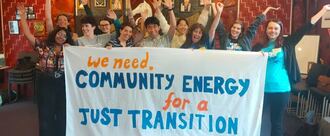
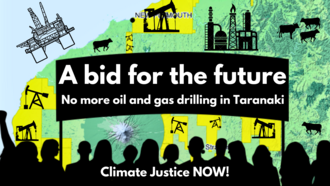
.png)
